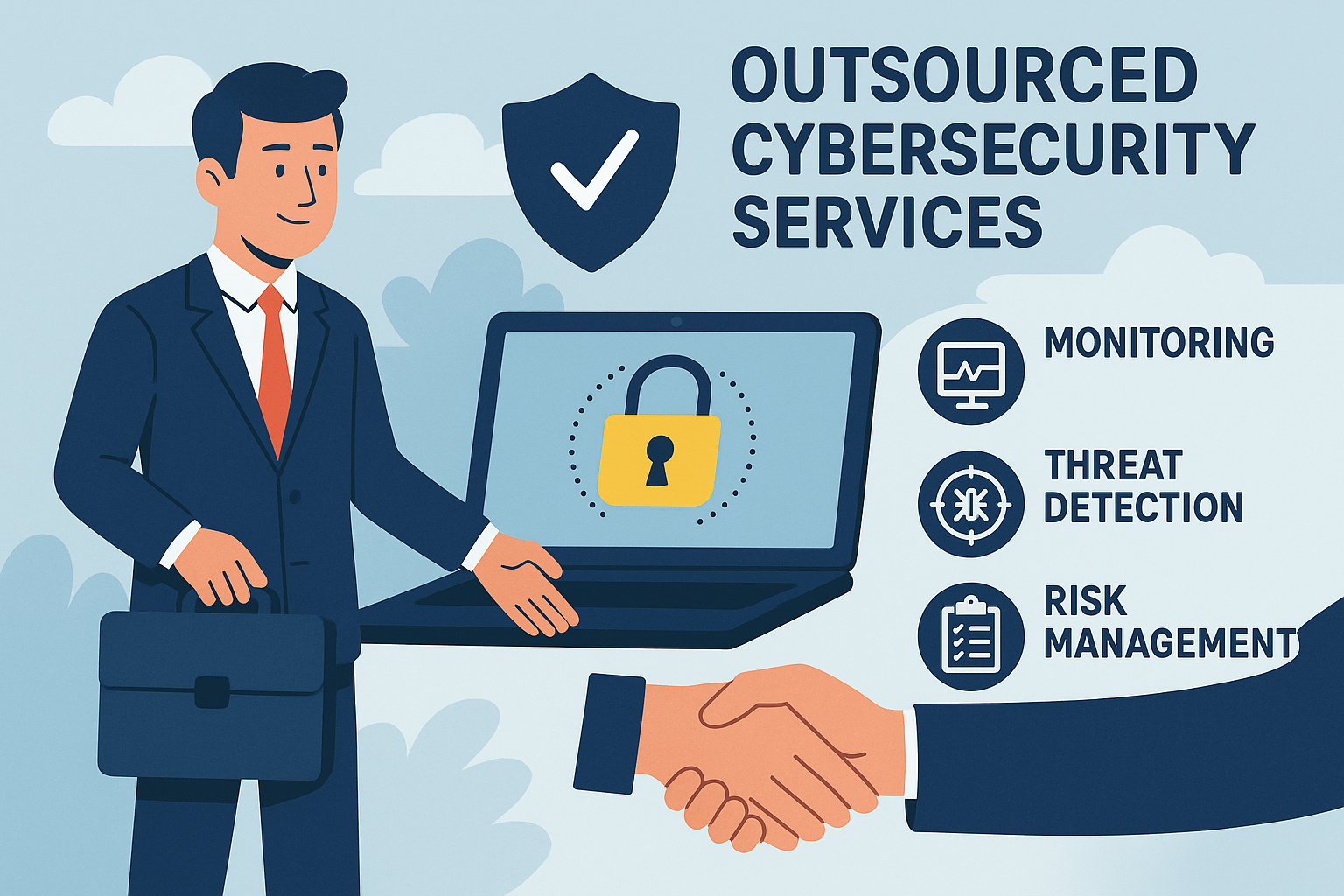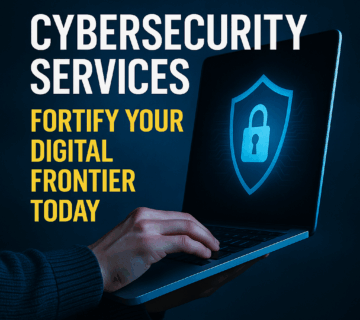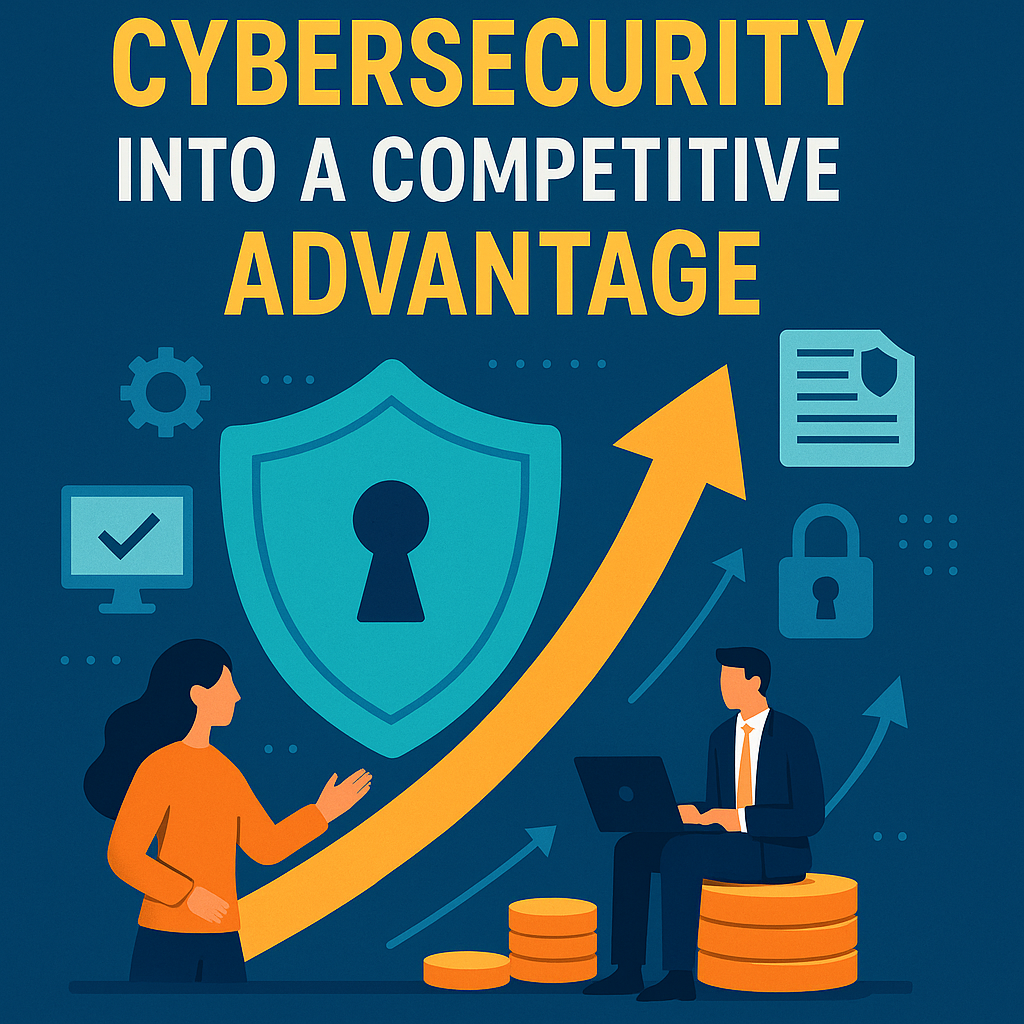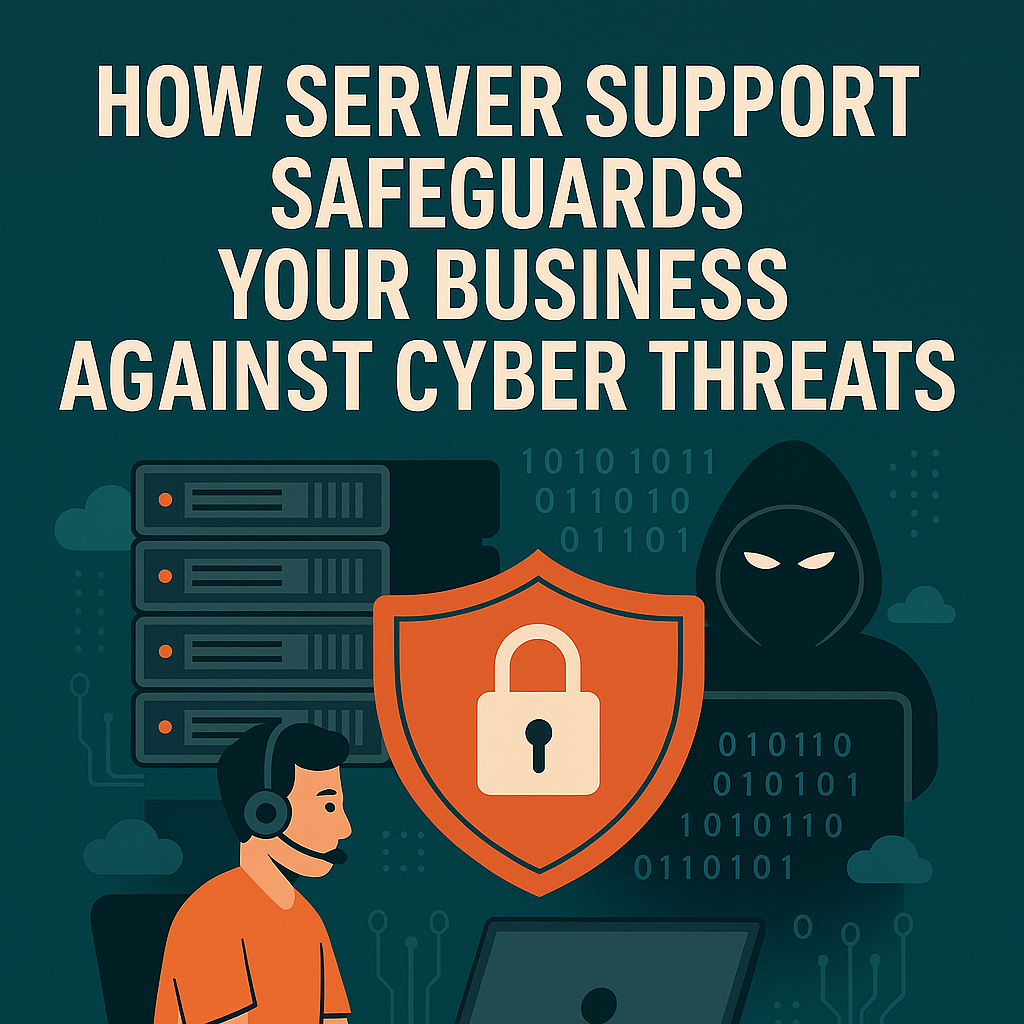The Complete Guide to Outsourced Cybersecurity Services in 2025

Outsourced cybersecurity services have become essential for organizations of all sizes in 2025. As cyber threats continue to evolve and become more sophisticated, businesses are increasingly turning to specialized security providers to protect their digital assets, maintain compliance, and ensure business continuity.
The cybersecurity skills gap, rising costs of in-house security teams, and the complexity of modern threat landscapes have made outsourcing an attractive option for many organizations. Whether you’re seeking affordable cyber security service panchkula or looking for the best cyber security company globally, this comprehensive guide explores everything you need to know about outsourced cybersecurity services in 2025.
Organizations across India are particularly benefiting from outsourced cybersecurity, with many cyber security company in india providers offering comprehensive services that compete on a global scale. From local IT support panchkula businesses to large enterprises, the demand for professional cybersecurity services continues to grow exponentially.
Why Organizations Choose Outsourced Cybersecurity {#why-outsource}
The Cybersecurity Skills Shortage
The global cybersecurity workforce shortage continues to impact organizations worldwide. With millions of unfilled cybersecurity positions, many companies struggle to find and retain qualified security professionals. Outsourcing provides immediate access to skilled security experts without the challenges of recruitment and retention.
Cost Efficiency
Building and maintaining an in-house cybersecurity team requires significant investment in salaries, training, tools, and infrastructure. Outsourced services offer predictable costs and access to enterprise-grade security solutions at a fraction of the cost of maintaining equivalent internal capabilities. This is particularly beneficial for organizations seeking affordable cyber security service panchkula or managed it services in panchkula, where local providers can offer competitive pricing while maintaining high service standards.
24/7 Security Monitoring
Cyber threats don’t follow business hours. Outsourced security providers offer round-the-clock monitoring and incident response capabilities that would be prohibitively expensive for most organizations to maintain internally.
Access to Advanced Technologies
Leading cybersecurity service providers invest heavily in cutting-edge security technologies, threat intelligence platforms, and artificial intelligence-driven security tools. Organizations can benefit from these advanced capabilities without the capital expenditure required for independent implementation.
Types of Outsourced Cybersecurity Services {#service-types}
Managed Security Services Provider (MSSP)
MSSPs offer comprehensive security monitoring, management, and response services. Core services typically include:
- Security Information and Event Management (SIEM) monitoring
- Vulnerability management and assessment
- Firewall and intrusion detection system management
- Incident response and forensics
- Compliance reporting and management
Security Operations Center as a Service (SOCaaS)
SOCaaS providers deliver dedicated security operations center capabilities, including:
- Real-time threat monitoring and analysis
- Security incident triage and escalation
- Threat hunting and intelligence
- Forensic analysis and investigation support
- Custom security playbook development
Managed Detection and Response (MDR)
MDR services combine technology and human expertise to provide:
- Advanced threat detection using machine learning and behavioral analytics
- Rapid incident response and containment
- Threat hunting across endpoints, networks, and cloud environments
- Detailed incident reporting and remediation guidance
Cloud Security Services
Specialized cloud security providers offer:
- Cloud configuration and compliance monitoring
- Identity and access management (IAM) services including admin center office 365 configuration and management
- Cloud workload protection
- Data loss prevention (DLP) for cloud environments
- Multi-cloud security orchestration
Penetration Testing and Vulnerability Assessment
External security testing services include:
- Regular penetration testing across web applications, networks, and systems
- Automated and manual vulnerability assessments
- Red team exercises and adversary simulation
- Compliance-focused security assessments
- Developer security training and secure code review
Incident Response and Digital Forensics
Specialized incident response services provide:
- Emergency incident response and containment
- Digital forensics and evidence collection
- Malware analysis and reverse engineering
- Legal support and expert witness services
- Business continuity and disaster recovery planning
Benefits and Challenges {#benefits-challenges}
Key Benefits
Expertise Access: Immediate access to specialized cybersecurity professionals with diverse skill sets and industry experience.
Scalability: Ability to scale security services up or down based on business needs and threat landscape changes.
Cost Predictability: Fixed monthly or annual costs that are easier to budget compared to variable internal security expenses.
Compliance Support: Expertise in regulatory requirements and assistance with compliance reporting and audits.
Threat Intelligence: Access to global threat intelligence networks and real-time security updates.
Technology Advancement: Regular updates to security tools and technologies without additional capital investment.
Common Challenges
Loss of Direct Control: Reduced direct oversight of security operations and potential delays in implementing changes.
Data Privacy Concerns: Sharing sensitive organizational data with third-party providers raises privacy and confidentiality questions.
Vendor Dependency: Risk of over-reliance on external providers and potential service disruptions.
Communication Gaps: Potential misalignment between internal teams and external security providers.
Customization Limitations: Standardized service offerings may not fully address unique organizational requirements.
Choosing the Right Provider {#choosing-provider}
Evaluation Criteria
Security Certifications and Compliance
- SOC 2 Type II certification
- ISO 27001 compliance
- Industry-specific certifications (HIPAA, PCI DSS, etc.)
- Staff security certifications (CISSP, CISM, CEH, etc.)
Service Level Agreements (SLAs)
- Response time guarantees
- Uptime commitments
- Performance metrics and reporting
- Escalation procedures
Technology Stack and Integration
- Compatibility with existing security tools
- API availability for system integration
- Support for multi-cloud environments
- Artificial intelligence and machine learning capabilities
Incident Response Capabilities
- Mean time to detection (MTTD)
- Mean time to response (MTTR)
- Forensic capabilities
- Communication protocols during incidents
References and Track Record
- Client testimonials and case studies
- Industry recognition and awards
- Financial stability and business continuity
- Experience in your industry vertical
Due Diligence Process
- Request for Proposal (RFP) Development: Create detailed requirements documents outlining your security needs, compliance requirements, and service expectations.
- Vendor Assessment: Evaluate multiple providers based on technical capabilities, service offerings, and cultural fit.
- Proof of Concept: Conduct pilot programs with shortlisted providers to assess service quality and integration capabilities.
- Security Assessment: Review the provider’s own security posture, including their infrastructure protection and data handling practices.
- Contract Negotiation: Ensure contracts include appropriate SLAs, liability protections, and termination clauses.
When evaluating providers, consider both global leaders and regional specialists. The best cyber security company for your organization may be a local provider offering managed it services in panchkula or IT support panchkula with deep understanding of regional compliance requirements and business practices.
Implementation Best Practices {#implementation}
Pre-Implementation Planning
Current State Assessment: Document existing security infrastructure, tools, and processes to identify integration requirements and potential gaps.
Stakeholder Alignment: Ensure buy-in from key stakeholders including IT leadership, legal, compliance, and business units.
Communication Strategy: Develop clear communication plans for internal teams and end users regarding service changes and new procedures.
Transition Management
Phased Rollout: Implement services gradually to minimize disruption and allow for adjustment based on initial experiences.
Knowledge Transfer: Facilitate comprehensive knowledge transfer sessions between internal teams and the service provider.
Testing and Validation: Conduct thorough testing of all security services and integration points before full deployment.
Ongoing Management
Regular Reviews: Schedule quarterly business reviews to assess service performance and discuss emerging threats or requirements.
Continuous Improvement: Work with providers to identify optimization opportunities and implement service enhancements.
Performance Monitoring: Establish key performance indicators (KPIs) and regularly monitor service delivery against agreed-upon metrics.
Cost Analysis and ROI {#cost-analysis}
Cost Components
Base Service Fees: Monthly or annual fees for core security services including monitoring, management, and basic incident response.
Additional Services: Costs for specialized services such as penetration testing, forensic investigations, or compliance assessments.
Technology Licensing: Fees for security tools and platforms provided by the service provider.
Implementation Costs: One-time costs for service setup, integration, and initial configuration.
ROI Calculation Factors
Avoided Costs: Savings from not hiring internal security staff, purchasing security tools, or maintaining security infrastructure.
Breach Prevention Value: Potential cost savings from prevented security incidents and data breaches.
Compliance Benefits: Reduced costs associated with regulatory compliance and audit preparation.
Operational Efficiency: Time savings for internal IT staff who can focus on strategic initiatives rather than routine security tasks.
Typical Cost Ranges
- Small Business (1-100 employees): $5,000 – $25,000 annually
- Mid-size Company (100-1,000 employees): $25,000 – $150,000 annually
- Large Enterprise (1,000+ employees): $150,000 – $1,000,000+ annually
Note: Costs vary significantly based on service scope, industry requirements, and organizational complexity.
Industry-Specific Considerations {#industry-considerations}
Healthcare Organizations
Healthcare entities face unique cybersecurity challenges including HIPAA compliance, medical device security, and patient data protection. Outsourced providers serving healthcare organizations should offer:
- HIPAA-compliant security monitoring and incident response
- Medical device vulnerability management
- Electronic health record (EHR) security assessment
- Business associate agreement (BAA) execution
- Specialized healthcare threat intelligence
Financial Services
Financial institutions require providers with expertise in:
- Payment Card Industry (PCI) compliance
- Banking regulations and oversight requirements
- Financial fraud detection and prevention
- High-frequency trading system security
- Anti-money laundering (AML) technology protection
Manufacturing and Industrial
Manufacturing organizations need providers familiar with:
- Operational technology (OT) and industrial control system (ICS) security
- Supply chain security assessment
- Intellectual property protection
- Manufacturing execution system (MES) security
- Safety-critical system protection
Government and Public Sector
Government entities require providers with:
- Security clearance capabilities
- FedRAMP compliance and authorization
- FISMA compliance expertise
- Critical infrastructure protection experience
- Incident response coordination with law enforcement
Future Trends in 2025 {#future-trends}
Artificial Intelligence Integration
AI-driven security services are becoming standard offerings in 2025. Leading providers integrate artificial intelligence and machine learning for:
- Predictive threat analysis and prevention
- Automated incident response and remediation
- Behavioral analytics for insider threat detection
- Natural language processing for security report generation
- Intelligent security orchestration and workflow automation
Zero Trust Architecture Support
Service providers increasingly offer zero trust implementation and management services including:
- Identity and access management (IAM) modernization
- Micro-segmentation strategy and implementation
- Continuous verification and monitoring
- Zero trust network access (ZTNA) deployment
- Policy development and enforcement automation
Cloud-Native Security Services
As organizations accelerate cloud adoption, providers offer specialized cloud-native security services:
- Container and Kubernetes security
- Serverless application protection
- DevSecOps integration and automation
- Multi-cloud security posture management
- Cloud infrastructure entitlement management (CIEM)
Extended Detection and Response (XDR)
XDR platforms that integrate multiple security data sources are becoming core service offerings:
- Unified threat detection across endpoints, networks, email, and cloud
- Automated threat correlation and investigation
- Integrated incident response workflows
- Advanced threat hunting capabilities
- Cross-platform security analytics
Quantum-Safe Cryptography Preparation
Forward-thinking providers are beginning to offer quantum-safe cryptography services:
- Cryptographic inventory and assessment
- Quantum-safe algorithm implementation planning
- Post-quantum cryptography roadmap development
- Legacy system migration planning
- Quantum threat timeline monitoring
Frequently Asked Questions {#faqs}
What is outsourced cybersecurity?
Outsourced cybersecurity refers to the practice of contracting external security service providers to handle some or all of an organization’s cybersecurity functions. This can include security monitoring, incident response, vulnerability management, compliance reporting, and other security-related services that would traditionally be performed by internal security teams.
How much does outsourced cybersecurity cost?
The cost of outsourced cybersecurity varies significantly based on organization size, industry requirements, and service scope. Small businesses typically spend $5,000-$25,000 annually, while mid-size companies invest $25,000-$150,000 per year. Large enterprises may spend $150,000 to over $1 million annually depending on their security needs and complexity. Organizations looking for affordable cyber security service panchkula can often find competitive pricing from local cyber security company in india providers without compromising on service quality.
What are the main types of outsourced cybersecurity services?
The primary types include Managed Security Services Provider (MSSP), Security Operations Center as a Service (SOCaaS), Managed Detection and Response (MDR), cloud security services, penetration testing and vulnerability assessment, and incident response and digital forensics services. Each type offers different capabilities and service levels.
Is outsourcing cybersecurity safe?
Outsourcing cybersecurity can be safe when done with reputable, certified providers. Key safety factors include choosing providers with appropriate certifications (SOC 2 Type II, ISO 27001), strong data protection practices, transparent security processes, and proven track records. Due diligence and proper contract terms are essential for safe outsourcing.
What should I look for in a cybersecurity service provider?
Key evaluation criteria include security certifications and compliance, clear service level agreements (SLAs), compatible technology stack, proven incident response capabilities, strong references and track record, industry-specific experience, and cultural fit with your organization. Financial stability and business continuity planning are also important considerations. When selecting the best cyber security company, consider both technical capabilities and local support availability, especially if you require IT support panchkula or managed it services in panchkula with on-site assistance capabilities.
How do I transition from in-house to outsourced cybersecurity?
Successful transitions involve conducting a current state assessment, ensuring stakeholder alignment, developing clear communication strategies, implementing services in phases, facilitating knowledge transfer, conducting thorough testing, and establishing ongoing management processes. Consider running pilot programs before full implementation.
Can outsourced cybersecurity help with compliance requirements?
Yes, reputable cybersecurity service providers offer specialized compliance support including regulatory requirement expertise, compliance monitoring and reporting, audit preparation assistance, documentation management, and ongoing compliance maintenance. Many providers have specific expertise in industry regulations like HIPAA, PCI DSS, and SOX.
What are the disadvantages of outsourcing cybersecurity?
Common disadvantages include reduced direct control over security operations, potential data privacy concerns, vendor dependency risks, possible communication gaps between internal and external teams, and limitations in service customization. These risks can be mitigated through careful provider selection and contract management.
How do I measure the success of outsourced cybersecurity services?
Success metrics include key performance indicators (KPIs) such as mean time to detection (MTTD), mean time to response (MTTR), number of incidents prevented or contained, compliance audit results, service level agreement adherence, and cost savings compared to in-house alternatives. Regular business reviews and performance assessments are essential.
Should small businesses consider outsourced cybersecurity?
Yes, small businesses often benefit significantly from outsourced cybersecurity services. Small organizations typically lack the resources to maintain comprehensive in-house security teams and benefit from accessing specialized expertise, advanced security technologies, and 24/7 monitoring capabilities at a fraction of the cost of building internal capabilities. Local providers offering affordable cyber security service panchkula and managed it services in panchkula can provide enterprise-level security solutions tailored to small business budgets and requirements.
What is the difference between MSSP and MDR services?
MSSPs typically focus on managing and monitoring existing security infrastructure and tools, providing compliance reporting, and basic incident response. MDR services offer more advanced threat detection, proactive threat hunting, rapid incident response, and detailed forensic analysis. MDR services generally provide deeper security expertise and more comprehensive threat response capabilities.
How often should I review my outsourced cybersecurity services?
Organizations should conduct formal service reviews quarterly to assess performance against SLAs, discuss emerging threats, evaluate new service offerings, and address any issues or concerns. Additionally, annual comprehensive reviews should evaluate overall service effectiveness, cost analysis, and strategic alignment with business objectives.
Can I partially outsource cybersecurity while keeping some functions in-house?
Yes, hybrid cybersecurity models are common and effective. Organizations often outsource specialized functions like 24/7 monitoring, threat intelligence, or incident response while maintaining internal capabilities for security strategy, governance, and day-to-day security administration. This approach allows organizations to balance control with specialized expertise.
What happens if my cybersecurity service provider experiences a security breach?
Reputable providers should have incident response plans that include immediate notification procedures, containment measures, forensic investigation capabilities, and communication protocols. Your contract should specify notification timelines, liability protections, and remediation responsibilities. Choose providers with strong security postures and cyber insurance coverage.
How do I ensure data privacy when outsourcing cybersecurity?
Ensure data privacy through careful contract negotiation including data handling and protection clauses, data residency requirements, confidentiality agreements, right to audit provisions, and clear data destruction procedures. Choose providers with appropriate privacy certifications and transparent data handling practices. Consider data encryption and anonymization where possible.




No comment